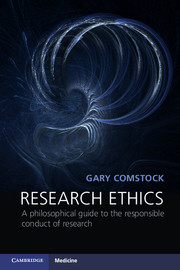Book contents
14 - Preserve environments
Published online by Cambridge University Press: 05 February 2013
Summary
Utilitarianism requires respect for all sentient beings, and this is the reason that two-level utilitarians insist on including animals’ pains and pleasures in their calculations. But prominent environmentalists think utilitarians do not go far enough. They want to see the moral circle expanded to include non-sentient entities such as ecosystems, natural processes, plants, rocks, and rivers. How might a two-level theorist address the concerns of environmentalists to preserve all of nature? This chapter addresses this question in terms of the effects of environmental policies on current humans, animals, and future generations of humans and animals.
Aldo Leopold, an eloquent critic of utilitarian valuations of nature, held that nature not only has intrinsic value but that, in addition, its intrinsic value must ground practical environmental management decisions. On such a view, the value of wilderness is not its utilitarian value because nature untouched by human hands does not, cannot, have a price tag. The desire of policy-makers to assign utility values to environmental goods is an indicator for Leopold of our lack of understanding of what he calls “the biotic community.”
Leopold is not alone in regarding the plant and animal worlds as having primarily nonutilitarian value. Some defend their views with philosophical arguments, and others defend it with religious, cultural, or spiritual claims. Others seem convinced of the view because they have particular, and particularly strong, attachments to specific mountains, valleys, streams, beaches, or marine areas. If one’s sense of identity is inseparable from a particular place, that place may have acquired for us a value that we cannot measure on a monetary scale.
For example, every major religion, it seems, has at least one prominent representative who construes nature as intrinsically valuable (e.g., St. Francis of Assisi, the Buddha, Meher Baba, Jain monks). The Bible, for example, depicts nature as the creation of a good God who declares all plants and animals and all the heavens and the earth “good.” Some American Indian cosmologies construe the earth as a mother, the sky as a father, the birds as brothers, the moon as sister. It comes as no surprise that on such views, nature is thought to be sacred, for it has a value on par with the value of the people we most love and revere. To reduce the value of one’s relative to a monetary value would be a sacrilege.
- Type
- Chapter
- Information
- Research EthicsA Philosophical Guide to the Responsible Conduct of Research, pp. 267 - 273Publisher: Cambridge University PressPrint publication year: 2013



